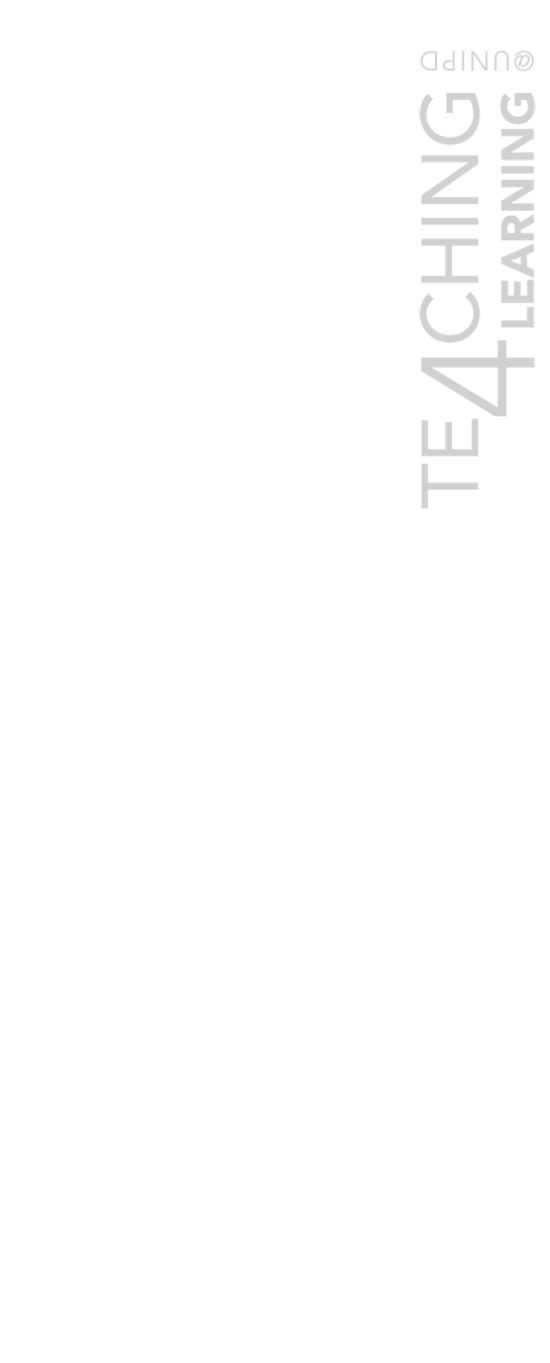
Archivio workshop 2020-2022
Archivio 2022-2022
20 maggio 2022
dalle 11 alle 13
Utilizzare attività di elaborazione per stimolare il coinvolgimento nella classe estesa (in presenza e online)
Relatrice Susanna Sancassani, Responsabile di METID del Politecnico di Milano, esperta di e-learning e di e-collaboration
Stimolare in aula l’elaborazione dei concetti proposti costituisce una strategia chiave per facilitare la memorizzazione, ma anche una migliore comprensione dei contenuti complessi. Nella classe estesa può diventare un’occasione di attivazione della classe e di facilitazione degli scambi tra docente, studenti in aula e studenti online. Come integrare attività di questo tipo nella didattica? Che ruolo possono avere i “mediatori” tecnologici?
19 aprile 2022
dalle 15.30 alle 17.00
Presentare in modo efficace
Alan Crivellari, autore di Effective Scientific Presentations: The Winning Formula.
Il seminario descrive gli elementi chiave di una presentazione efficace fornendo informazioni, esercizi pratici e numerose opportunità di discussione. I partecipanti impareranno come perfezionare le loro capacità come presentatori, come pianificare e strutturare una presentazione efficace, aumentando l'efficacia delle loro lezioni.
È possibile iscriversi a questo link.
8 aprile 2022
dalle 16.00 alle 17.30
How Flexible is HyFlex? Hybrid and Flexible Active Learning and Teaching in Today's University Classrooms
Speaker Joellen Coryell
Joellen E. Coryell, Ph.D., is Professor of Adult, Professional, and Community Education and Assistant Dean for Educational Partnerships and Enrollment at Texas State University
1 aprile 2022
dalle 14:30 alle 16:00
Riempire di senso il voto: la valutazione formativa
Relatore Susanna Sancassani, Responsabile di METID del Politecnico di Milano, esperta di e-learning e di e-collaboration
L'attribuzione di un voto è un passaggio molto importante nell'esperienza di insegnamento/apprendimento. Il primo pensiero va ai momenti di verifica strutturati e agli esami finali. In realtà, nella progettazione del nostro insegnamento, possiamo prevedere vari processi di valutazione delle conoscenze/abilità/competenze degli studenti che permettono anche di monitorare l'efficacia delle attività didattiche, fornendo feedback per orientare i passi successivi.
Archivio 2019-2021
Feedback e assessment
12 febbraio 2021
10:00-12:30
Workshop "Le giornate della didattica"
An effective feedback cycle
Relatore Cam Brooks
Incontro Zoom per Change Agent e docenti che hanno frequentato almeno un corso T4L
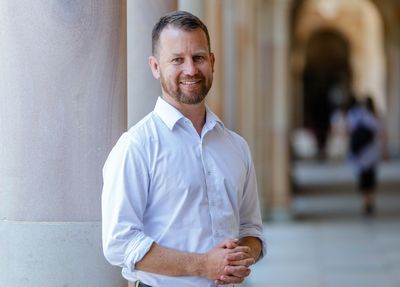
Cam Brooks is a postdoctoral research fellow at the University of Queensland.
He is currently a lead researcher on an Australian Research Council Linkage Project, investigating the effects of a feedback coaching intervention on teaching practice, student perceptions of feedback and student achievement.
Cam’s current research focus is on how students can be made active in the feedback process and how teachers can best use formative assessment to map the next steps for student improvement.
Feedback is regarded as one of the most powerful influences upon learning yet it’s effects are highly variable. These two workshops (12.02.2021, 12.03.2021) draw upon research to explore ways that feedback can be made effective for students and sustainable for teachers.
Workshop one (12.02.2021) begins by shifting thinking about feedback from a teacher directed to a student-centred model of learning.
Workshop two (12.03.2021) introduces a feedback cycle with the aim of fostering student self-regulation.
Practical examples of the application of effective feedback processes will be discussed.
12 marzo 2021
10:00-12:30
Workshop "Le giornate della didattica"
An effective feedback cycle
Relatore Cam Brooks
Incontro Zoom rivolto a Change Agent e docenti che hanno frequentato almeno un corso T4L
Per partecipare è necessario prenotare entro il 10 marzo 2021

Cam Brooks is a postdoctoral research fellow at the University of Queensland.
He is currently a lead researcher on an Australian Research Council Linkage Project, investigating the effects of a feedback coaching intervention on teaching practice, student perceptions of feedback and student achievement.
Cam’s current research focus is on how students can be made active in the feedback process and how teachers can best use formative assessment to map the next steps for student improvement.
Feedback is regarded as one of the most powerful influences upon learning yet it’s effects are highly variable. These two workshops (12.02.2021, 12.03.2021) draw upon research to explore ways that feedback can be made effective for students and sustainable for teachers.
Workshop one (12.02.2021) begins by shifting thinking about feedback from a teacher directed to a student-centred model of learning.
Workshop two (12.03.2021) introduces a feedback cycle with the aim of fostering student self-regulation.
Practical examples of the application of effective feedback processes will be discussed.
31 marzo 2021
Workshop “Le giornate della didattica”
10:00-12:30
Effective and sustainable feedback for learning
Relatore Cam Brooks
Incontro Zoom per tutti i docenti dell'Ateneo
Per partecipare è necessario prenotare entro il 29 marzo 2021
Lo stesso Workshop è disponibile anche in data 20 maggio 2021

Cam Brooks is a postdoctoral research fellow at the University of Queensland.
He is currently a lead researcher on an Australian Research Council Linkage Project, investigating the effects of a feedback coaching intervention on teaching practice, student perceptions of feedback and student achievement.
Cam’s current research focus is on how students can be made active in the feedback process and how teachers can best use formative assessment to map the next steps for student improvement.
Feedback is regarded as one of the most powerful influences upon learning yet it’s effects are highly variable. This workshop draws upon research to explore ways that feedback can be made effective for students and sustainable for teachers. The workshop begins by examining prerequisites of effective feedback conditions before introducing a feedback cycle to foster student self-regulation. Practical examples of the application of effective feedback processes will be discussed.
20 maggio 2021
Workshop “Le giornate della didattica”
10:00-12:30
Effective and sustainable feedback for learning
Relatore Cam Brooks
Incontro Zoom per tutti i docenti dell'Ateneo
Per partecipare è necessario prenotare entro il 16 maggio 2021
Lo stesso Workshop è disponibile anche in data 31 marzo 2021

Cam Brooks is a postdoctoral research fellow at the University of Queensland.
He is currently a lead researcher on an Australian Research Council Linkage Project, investigating the effects of a feedback coaching intervention on teaching practice, student perceptions of feedback and student achievement.
Cam’s current research focus is on how students can be made active in the feedback process and how teachers can best use formative assessment to map the next steps for student improvement.
Feedback is regarded as one of the most powerful influences upon learning yet it’s effects are highly variable. This workshop draws upon research to explore ways that feedback can be made effective for students and sustainable for teachers. The workshop begins by examining prerequisites of effective feedback conditions before introducing a feedback cycle to foster student self-regulation. Practical examples of the application of effective feedback processes will be discussed.
11 dicembre 2020
Developing Innovative Assessment in Challenging Times, relatrice Karen Clegg
This workshop, open to all faculty will provide practical tips and ideas about how to promote and assess active learning. We will use interactive tools to generate and share ideas about current teaching and assessment techniques, objective setting and consider how to provide meaningful feedback (particularly in an online environment). Faculty are invited to consider in advance their challenges in facilitating active learning and be ready to share those with colleagues.
Karen Clegg is Head of the Research Excellence Training Team, University of York (UK) and is responsible for the strategic development of the University's support and provision for postgraduate research students, research staff and PhD supervisors.
9 novembre 2020
Assessing Student Learning Online, relatrice Linda Nilson
After this workshop, you will be able to do the following in your online, remote, and duale courses: 1) assess your students’ achievement of your learning outcomes, both informally and formally, with an emphasis on outcomes that require thinking; and 2) help your students prepare for and learn from tests using online tools. You will learn how to apply general assessment guidelines, develop informal (ungraded) assessments, and compose good test questions, both objective and constructed response, that assess students’ thinking skills as well as their knowledge.
Linda B. Nilson, Ph.D., has authored Online Teaching at Its Best: Merging Instructional Design with Teaching and Learning Research with Ludwika Goodson (second edition forthcoming in 2021) and Teaching at Its Best: A Research-Based Resource for College Instructors (now in its fourth edition).
Comunicazione e relazione
08, 15, 22 febbraio 2021
Workshop “Le giornate della didattica”
Comunicazione e presenza 2.0
Ciclo di incontri, ore 16:00-18:00
Relatore Carlo Presotto
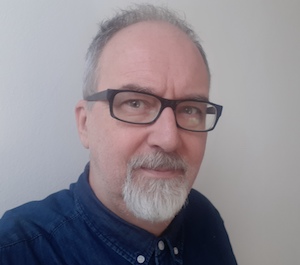 Dopo un ciclo di incontri svoltosi in autunno, riproponiamo un secondo passaggio, rivolto sia a chi ha già seguito la prima sessione, sia a chi è interessato alla tematica ma non ha avuto esperienze precedenti.
Dopo un ciclo di incontri svoltosi in autunno, riproponiamo un secondo passaggio, rivolto sia a chi ha già seguito la prima sessione, sia a chi è interessato alla tematica ma non ha avuto esperienze precedenti.
L'attuale crisi dovuta alla pandemia ha reso necessaria una forte accelerazione dell'uso degli strumenti digitali nella comunicazione tra le persone, e nella didattica.
Dopo aver bruciato molte tappe si tratta ora di riflettere, organizzare e costruire le basi per passare da una didattica di emergenza ad una didattica in grado di integrare consapevolmente diversi piani di comunicazione.
Il paradigma che muove questa riflessione è quello della comunicazione e dell'apprendimento come costruzione condivisa di significati tra docente e studente, l'idea di una comunità e di un ambiente di apprendimento complesso, in cui il docente ha un ruolo determinante ma non esclusivo.
Analogamente questa crisi ha coinvolto anche altri settori, come quello delle arti performative, stimolando una riflessione che riorganizza diverse sperimentazioni che negli ultimi anni si sono mosse sul confine tra reale e virtuale, tra presenza ed assenza, e che possiamo riunire nella definizione di performing media.
Il laboratorio propone un confronto tra il punto di vista del teatro contemporaneo e quello dell'università, focalizzandosi in particolare sulla condivisione di metodi e strumenti del public speaking attraverso un medium.
La proposta prevede un'articolazione in tre seminari on line, con la possibilità di realizzare una serie di attività pratiche.
- L'uso della voce. dal respiro consapevole alla parola
- Linguaggi non verbali. dalla postura allo sguardo
- Ritmo della comunicazione e gestione del feedback
30 aprile, 7 e 14 maggio 2021 Ciclo di incontri
Workshop "Le giornate della didattica"
16.00 - 18-00
Comunicazione e presenza 2.0 - edizione aprile-maggio
Dopo i successi delle edizioni dell'autunno 2020 e di febbraio 2021, questa edizione è dedicata a chi non ha mai frequentato i Workshop "Comunicazione e presenza"
Carlo Presotto
 Presidente e direttore artistico del Centro di Produzione teatrale La Piccionaia, docente presso IUSVE e Ca Foscari, formatore. Regista ed attore teatrale, sviluppa dalla metà degli anni 1980 una particolare modalità di interazione tra teatro di narrazione e tecnologie che rappresenta una cifra originale nel panorama teatrale italiano. Il suo lavoro di studio rimane sempre connesso ad una intensa attività artistica.
Presidente e direttore artistico del Centro di Produzione teatrale La Piccionaia, docente presso IUSVE e Ca Foscari, formatore. Regista ed attore teatrale, sviluppa dalla metà degli anni 1980 una particolare modalità di interazione tra teatro di narrazione e tecnologie che rappresenta una cifra originale nel panorama teatrale italiano. Il suo lavoro di studio rimane sempre connesso ad una intensa attività artistica.
Il laboratorio propone un confronto tra il punto di vista del teatro contemporaneo e quello dell'università, focalizzandosi in particolare sulla condivisione di metodi e strumenti del public speaking. La proposta prevede un'articolazione in tre seminari on line:
1) L'uso della voce. dal respiro consapevole alla parola;
2) Linguaggi non verbali. dalla postura allo sguardo;
3) Ritmo della comunicazione e gestione del feedback.
Incontro con piattaforma Zoom rivolto a tutti i docenti dell'Ateneo
Per partecipare è necessario prenotare entro il 28 aprile 2021
19 novembre, 26 novembre, 3 dicembre 2021– ciclo di incontri
Workshop “Le giornate della didattica”
15:30-18.30 - Sala meeting della Biblioteca Beato Pellegrino, Via Beato Pellegrino 28
Comunicazione e Improvvisazione
CambiScena Improvvisazione Teatrale
(Claudia Gafà, Marianna Cerbone, Antonio Contartese)
Incontro per tutti i docenti dell'Ateneo
Per partecipare è necessario prenotare entro il 16.11.2021
27 ottobre, 12 novembre, 17 novembre 2020 - Workshop “Le giornate della didattica”
Comunicazione e presenza, Ciclo di incontri, relatore Carlo Presotto
- Lo sguardo di Polifemo: Public speaking e webcam
- La prigione di Circe: incatenati in una griglia, tra zoom e gmeet
- Il canto delle Sirene: gestione dell'attenzione e della concentrazione del pubblico
L'attuale crisi dovuta alla pandemia ha reso necessaria una forte accelerazione dell'uso degli strumenti digitali nella comunicazione tra le persone, e nella didattica. Il Workshop propone un confronto tra il punto di vista del teatro contemporaneo e quello dell'Università, focalizzandosi sulla condivisione di metodi e strumenti del public speaking. Un approccio articolato che prevede l'utilizzo di strumenti che alimentano l'interazione, dalle "storie" di Instagram alle bacheche virtuali come Padlet e Mural, al confronto e la riflessione sulle pratiche messe in atto dai partecipanti nella fase di emergenza e nelle diverse discipline.
Carlo Presotto è Direttore Artisitico di “La Piccionaia Centro di Produzione Teatrale”
Strategie didattiche
23 aprile 2021
Workshop "Le giornate della didattica"
14:30 - 17:00
Teaching Is So Much More than Telling: Building Teaching Practices for Active Learning with Today's University Students
Joellen Coryell
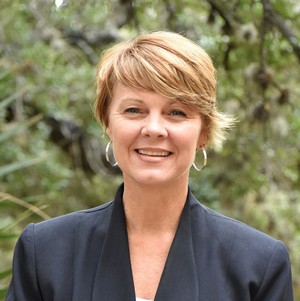 Joellen E. Coryell, Ph.D., is Professor of Adult, Professional, and Community Education and Assistant Dean for Educational Partnerships and Enrollment at Texas State University
Joellen E. Coryell, Ph.D., is Professor of Adult, Professional, and Community Education and Assistant Dean for Educational Partnerships and Enrollment at Texas State University
In this interactive, online workshop, Professor Joellen Coryell will engage participants in understanding learning theory, characteristics and needs of today's university learners, and how to design teaching for active student engagement and deeper learning. Participants will take part in meaningful discussions with other faculty about teaching and learning and leave with a multitude of research-based teaching activities, hints, and tips to help them improve their teaching approaches and outcomes.
Incontro con piattaforma Zoom rivolto a tutti i docenti dell'Ateneo
Per partecipare è necessario prenotare entro il 20 aprile 2021
28 maggio 2021
Workshop “Le giornate della didattica”
14:00 - 18:00
Problem-Based Learning (PBL) all'Università: cenni teorici ed esperienza pratica
Relatore Antonella Lotti
Incontro Zoom per tutti i docenti dell'Ateneo
Per partecipare è necessario prenotare entro il 26 maggio 2021
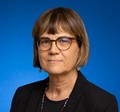 Antonella Lotti: Professore Associato di Pedagogia Sperimentale presso l’Università di Modena e Reggio Emilia, ove insegna Metodologie Didattiche Innovative e Progettazione formativa nei contesti sanitari. Vice-Presidente della Società Italiana di Pedagogia Medica (SIPeM). Autrice di numerosi libri e articoli scientifici dedicati al Problem Based Learning.
Antonella Lotti: Professore Associato di Pedagogia Sperimentale presso l’Università di Modena e Reggio Emilia, ove insegna Metodologie Didattiche Innovative e Progettazione formativa nei contesti sanitari. Vice-Presidente della Società Italiana di Pedagogia Medica (SIPeM). Autrice di numerosi libri e articoli scientifici dedicati al Problem Based Learning.
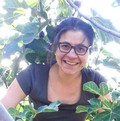 Annamaria De Santis: Instructional Designer presso il Centro Interateneo Edunova dell’Università degli Studi di Modena e Reggio Emilia, i suoi interessi di lavoro e ricerca comprendono il design di ambienti e percorsi di apprendimento online, l’e-Learning e le tecnologie didattiche, la ricerca quantitativa in educazione.
Annamaria De Santis: Instructional Designer presso il Centro Interateneo Edunova dell’Università degli Studi di Modena e Reggio Emilia, i suoi interessi di lavoro e ricerca comprendono il design di ambienti e percorsi di apprendimento online, l’e-Learning e le tecnologie didattiche, la ricerca quantitativa in educazione.
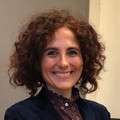 Paola Alessia Lampugnani: Pedagogista, Ph.D. in Scienze Sociali, assegnista di ricerca in Didattica e Pedagogia speciale presso il Dipartimento di Scienze della Formazione dell’Università di Genova. Membro del Team di Innovazione Didattica dello stesso Ateneo. Suoi interessi di ricerca sono il Faculty Development, la Pedagogia Medica, la pedagogia dell’inclusione.
Paola Alessia Lampugnani: Pedagogista, Ph.D. in Scienze Sociali, assegnista di ricerca in Didattica e Pedagogia speciale presso il Dipartimento di Scienze della Formazione dell’Università di Genova. Membro del Team di Innovazione Didattica dello stesso Ateneo. Suoi interessi di ricerca sono il Faculty Development, la Pedagogia Medica, la pedagogia dell’inclusione.
 Psicologo del lavoro e delle organizzazioni, PhD in psicologia, formatore esperto di metrologie didattiche partecipative, instructional designer dell’università di Genova. Presidente e fondatore dello spin off dell’università di Genova V.I.E. Esperto nello sviluppo e validazione di questionari per la ricerca psico-sociale.
Psicologo del lavoro e delle organizzazioni, PhD in psicologia, formatore esperto di metrologie didattiche partecipative, instructional designer dell’università di Genova. Presidente e fondatore dello spin off dell’università di Genova V.I.E. Esperto nello sviluppo e validazione di questionari per la ricerca psico-sociale.
15 ottobre 2021
Workshop “Le giornate della didattica”
15:00-18:00 - Aula T3, edificio CLA, Via Venezia 16
Didattica a piccoli gruppi in grandi aule con il Team Based Learning (TBL)
Relatrice Antonella Lotti
Incontro per tutti i docenti dell'Ateneo
Per partecipare è necessario prenotare entro il 12.10.2021
4 novembre 2021
Workshop “Le giornate della didattica”
14:00-17:00 – Incontro Zoom
Teaching Is So Much More than Telling: Building Teaching Practices for Active Learning with Today’s University Students
Relatrice Joellen Coryell
Incontro per tutti i docenti dell'Ateneo
Per partecipare è necessario prenotare entro il 02.11.2021
12 novembre 2021
Workshop “Le giornate della didattica”
14:00-17:00 - Aula T3, edificio CLA, Via Venezia 16
Smart Learning Design 25 - Insegnare è importante, ma è più importante imparare
Relatrice Susanna Sancassani
Incontro per tutti i docenti dell'Ateneo
Per partecipare è necessario prenotare entro il 10.11.2021
28 ottobre 2020 - Workshop “Le giornate della didattica”
Designing a Course Taught in Any Mode, relatrice Linda Nilson
In this workshop, you will learn how to structure a logical, coherent course around measurable student learning outcomes. Designing such a course—whether online, remote, duale (hyflex), or face-to-face—starts with formulating clear, assessable student learning outcomes because these outcomes should inform your choice of teaching methods and prescribe your assessments. This correspondence constitutes the basis of a well-aligned course, which is especially important in online courses. In addition, students need to be able to see this structure, so this workshop will enable you to organize your outcomes chronologically into ultimate, mediating, and foundational and create an outcomes map that will visually display your students’ learning process and serve as the skeleton for your course. You will also learn how to create a graphic syllabus, which illustrates the organization of and interrelationships among your course topics. Please have your course syllabi handy for reference as well as blank paper.
Linda B. Nilson, Ph.D., has authored Online Teaching at Its Best: Merging Instructional Design with Teaching and Learning Research with Ludwika Goodson (second edition forthcoming in 2021) and Teaching at Its Best: A Research-Based Resource for College Instructors (now in its fourth edition).
13 ottobre 2020 - Workshop “Le giornate della didattica”
Uomo e Macchina e Uomo, relatore Giovanni De Luigi
Incontro sui temi del nuovo rapporto tra uomo e tecnologia, con stimoli critici sull'uso delle telecamere, del computer e delle macchine nella didattica.
La macchina segna una svolta in questi ultimi tre secoli, una svolta problematica ma non drammatica. Si propone un confronto tra intelligenza artificiale e l’uomo corpo, con tutte le sue capacità espressive. Forse oggi non è l’intelligenza artificiale che ci preoccupa, ma quella naturale. L’idea di corpo macchina appartiene ai pensatori classici Platone, Aristotele, Cartesio. La macchina umana è l’orgoglio della nostra specie fino a quando sono apparsi gli organismi artificiali sempre più efficienti. Il confronto si è presentato con la pandemia e le nostre capacità interpretative di comunicazione attraverso il computer e si sono presentate le difficoltà. Durante gli incontri si affronterà la possibilità di superare queste difficoltà."
Giovanni De Luigi è attore e regista vicino alla Commedia dell'Arte, ha collaborato con Carlson, Fassbinder, Fo, Scaparro, Strehler, e lavorato in ambito universitario e ospedaliero.
25 settembre 2019 - Workshop
Workshop Progettare l'innovazione didattica: il metodo della Rete dell'Apprendimento, le possibili applicazioni in contesti didattici di blended learning, monitoraggio delle iniziative didattiche sperimentali.
Relatore Susanna Sancassani, Responsabile di METID del Politecnico di Milano, esperta di e-learning e di e-collaboration
28 maggio 2019 - Workshop
The Nuts and Bolts of Active Learning, 28 maggio 2019, alle 15
Archivio Antico a Palazzo del Bo
Workshop tenuto dalla prof.ssa Maryellen Weimer, Ph.D, della Penn State University
Il workshop è gratuito e rivolto a tutto il personale docente di Ateneo.
Online teaching and learning
13 novembre 2020 - Workshop “Le giornate della didattica”
Active Learning Online: More Effective Than Lecturing , relatrice Linda Nilson
An overwhelming amount of research documents that students learn more deeply and retain the knowledge longer when they learn through activities than by only listening to a lecture. Learning through activities is called active learning, and this workshop will able you to implement it in your online, remote, and duale courses. Specifically, you will be able to 1) wisely select when to lecture and when not to, according to your goals; 2) motivate students to prepare for online active learning meetings; 3) wisely select active learning strategies that will help students achieve your learning outcomes; 4) ease into active learning by incorporating short student activities into your lectures; and 5) lead longer student activities, such as discussions, peer feedback, and virtual laboratories, during and outside of online meetings. Please have your course syllabus handy for reference.
Linda B. Nilson, Ph.D., has authored Online Teaching at Its Best: Merging Instructional Design with Teaching and Learning Research with Ludwika Goodson (second edition forthcoming in 2021) and Teaching at Its Best: A Research-Based Resource for College Instructors (now in its fourth edition).
6 novembre 2020 - Workshop “Le giornate della didattica”
Principles from Pedagogical Science for Teaching Online relatrice Linda Nilson
It is much more efficient and rewarding to teach in consonance with the way the mind operates than against it. After this workshop, you will be able to integrate teaching methods, learning activities, and assignments into your online courses that, according to pedagogical (cognitive) science research, will make your courses more effective and engaging for students. Specifically, your students will learn your material more deeply, retain it longer, and retrieve it more easily. We will examine 10 principles from pedagogical (cognitive) science on how people learn best and, after each principle, strategies to apply it in your online teaching.
Linda B. Nilson, Ph.D., has authored Online Teaching at Its Best: Merging Instructional Design with Teaching and Learning Research with Ludwika Goodson (second edition forthcoming in 2021) and Teaching at Its Best: A Research-Based Resource for College Instructors (now in its fourth edition).
26 maggio 2020 - ore 17.00 - Workshop
Fase 4.0 - Mooc online di qualità dopo la rivoluzione Covid , relatore Mauro Calise
Mauro Calise è fondatore e direttore di Federica.eu, la piattaforma leader in Europa di Massive Open Online Courses con la quale l'ateneo ha stipulato una convenzione dalla quale, in risposta all'emergenza Covid, è nata Federica.Go con l'obiettivo di incrementare in tempi brevi e su ampia scala il potenziale di didattica multimediale di qualità. Mauro Calise è autore di alcuni dei testi più influenti nel dibattito politico italiano degli ultimi anni. Il più recente, Il Principe Digitale (con Fortunato Musella), per i tipi di Laterza.
L'incontro avverrà tramite una piattaforma online previa iscrizione
Video del Workshop
Prossimi webinar Federica Web Learning - Fondazione CRUI
https://www.federica.eu/elearning-webinar-crui-federica/
21 maggio 2020 - Incontri per Change Agent
Perusall: innovare la didattica con la social annotation
Perusall (https://perusall.com/): ambiente per condividere materiali di studio online e consentire agli studenti, tramite annotazioni sul testo, di dialogare sui punti controversi, aiutandosi l'un l'altro e con la supervisione del docente.
Sviluppo organizzativo
10 luglio 2020 - Incontri per Change Agent
Leading Change as Change Agent, relatrice Laura Bierema, University of Georgia,
Leading as a change agent is challenging and the work is often undervalued, unrecognized and may even be met with resistance. Even the most enthusiastic change agents may lack the capacity to sell the work they are doing to colleagues and administrators. This active workshop will engage faculty with strategies and community building around how to both survive and thrive as a change agent. Opportunities for networking and providing support to faculty who are challenging their colleagues, administrators, and students to teach and learn actively will be featured in this workshop.
16 settembre 2019 - Incontri per Change Agent
Prospettive di sviluppo professionale per i change agent: il modello della UBC University of British Columbia di Vancouver
relatore Harry Hubbal
27 maggio 2019 - Workshop per Change agent
A Process for Implementing Change Successfully, 27 maggio 2019, ore 10
Sala Canova a Palazzo Storione
Workshop tenuto dalla prof.ssa Maryellen Weimer, Ph.D, della Penn State University
rivolto esclusivamente ai Change Agent di Ateneo
By Maryellen Weimer, Ph.D.
“One day at the driving range, I was demonstrating my swing while remarking, ‘Practice makes perfect.’ [My golf instructor’s] disarming response was, ‘Only if you begin with a good swing. My advice to you is to either stop practicing or change your swing.’ In teaching, as in golf, repeating poor teaching mechanics can actually move us away from, not closer to, our performance objective of effective student learning.”
Whetten, D. A. “Principles of Effective Course Design: What I Wish I Had Known About Learner-Centered Teaching 30 Years Ago.” Journal of Management Education, 2007, 31 (3), 339-357.
Orienting to Change
Improvement is not a dirty word
Fixing problems and building strengths
Think about more and better learning for students
Teaching excellence is a journey not a quest
Making Good Change Choices
More head and less gut choices when deciding what to change
Consider fit
Taking some risks
How to Change: Adapting and Implementing
Making it work when I do it, with my content, my students and in my classroom
The systematic approach vs. the Nike “just do it” approach
Deciding: Did it Work?
The worst time to decide
What teachers should decide
Soliciting and responding to student feedback
Deciding: Should I do it More?
The iterative process of change
When to abandon an innovation
When to diffuse the innovation more broadly
Deciding when I’ve done it too long
Content from Maryellen Weimer’s, Inspired College Teaching: A Career-Long Resource for Professional Growth , published by Jossey-Bass, 2010.
Ufficio Offerta formativa
Progetto Teaching4Learning
Via Venezia 16 - Padova
Tel. 049 827 6316 - 1246 - 7160
Email: teaching4learning@unipd.it



